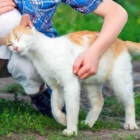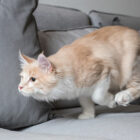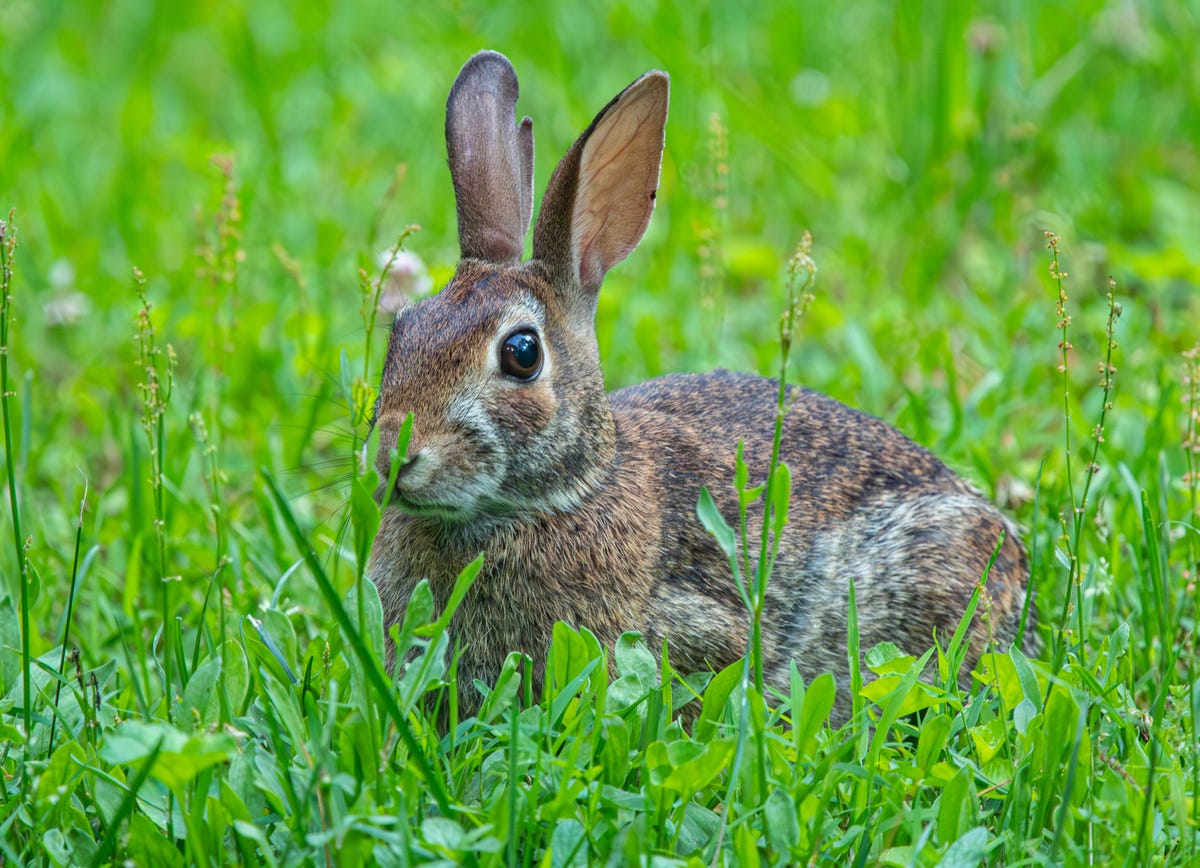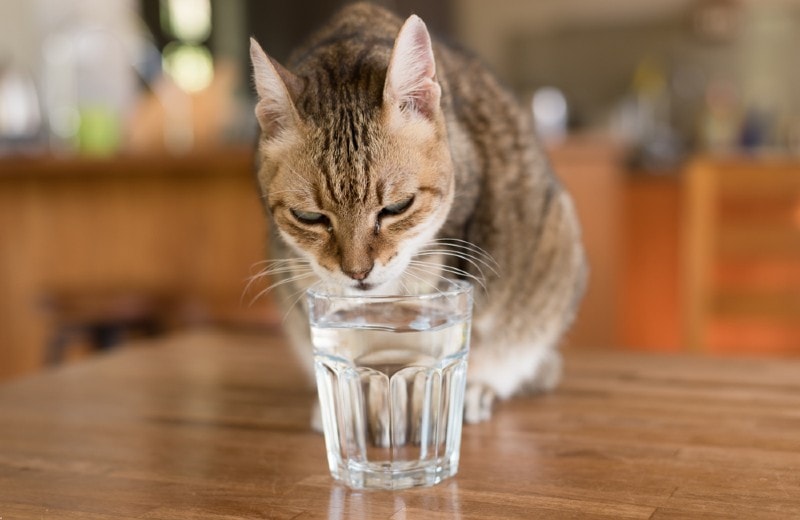Why does my cat lick me?
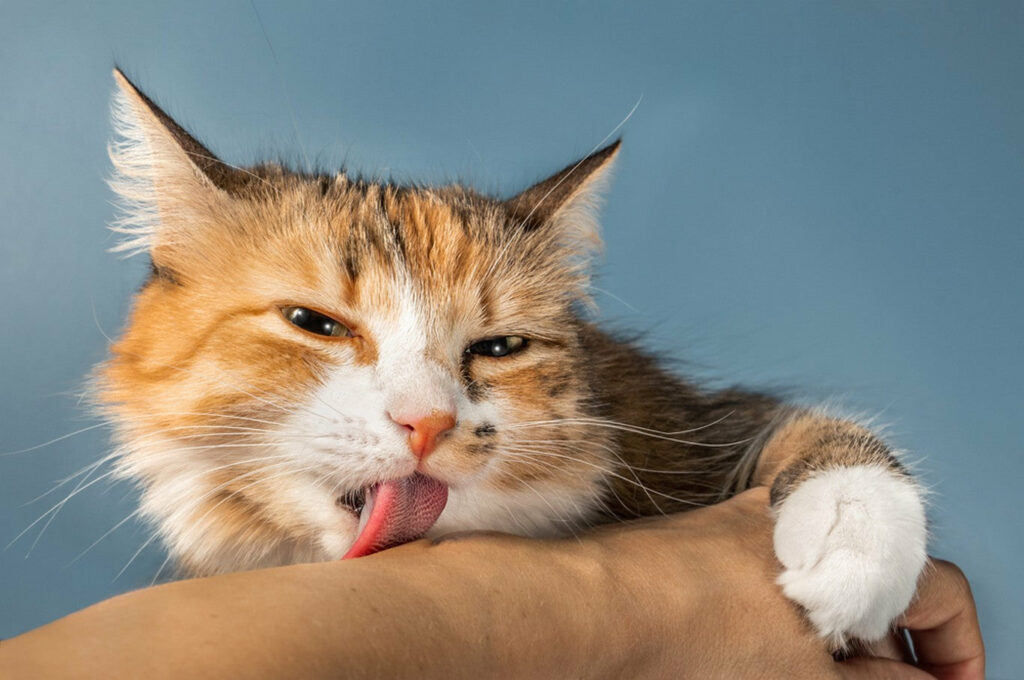
While there might not be an extensive body of scientific research dedicated solely to the behavior of why cats lick their owners, there are several behavioral and environmental factors that can explain this action.
Cats have a multitude of ways to communicate and show affection, one of which is through licking. While scientific studies specifically focusing on this behavior might be limited, experts in feline behavior offer insights into potential reasons behind why cats lick their owners.
Grooming and Social Bonding
Dr. Mikel Delgado, a certified cat behavior consultant, suggests that when cats lick their owners, it can be an extension of their grooming behavior. In social groups, cats groom each other to reinforce social bonds. Licking might signify an expression of trust and bonding.
Scent and Identification
Dr. John Bradshaw, an expert in animal behavior, explains that cats have scent glands on their tongues. Licking can transfer their scent to their owners, marking them with the cat’s scent and indicating a shared social group, fostering a sense of belonging.
Affection and Nurturing
Dr. Sharon Crowell-Davis, a veterinary behaviorist, notes that licking might be an expression of affection and care. Cats might lick their owners to demonstrate their nurturing instincts, similar to how they would groom their kittens.
Seeking Attention or Interaction
Dr. Carlo Siracusa, a veterinarian specializing in animal behavior, suggests that licking can be a way for cats to seek attention or interaction. Cats might lick their owners to gain attention or prompt a response.
Stress Reduction and Soothing
Licking can have a calming effect on cats. Dr. Rachel Barrack, a veterinarian, explains that licking releases endorphins, providing stress relief and a sense of comfort for the cat. When cats lick their owners, it could be a self-soothing action.
The behavior of cats licking their owners is multifaceted, encompassing aspects of grooming, social bonding, scent marking, affection, seeking attention, and stress reduction. Understanding a cat’s behavior and acknowledging their cues is essential in interpreting this form of communication and affection.
For cat owners, reciprocating the affection and acknowledging a cat’s grooming behavior through gentle interaction or grooming sessions, as well as providing a comforting environment, can help nurture the bond between feline friends and their owners.
(References: Insights derived from experts in feline behavior and veterinary medicine, including Dr. Mikel Delgado, Dr. John Bradshaw, Dr. Sharon Crowell-Davis, Dr. Carlo Siracusa, and Dr. Rachel Barrack.)

